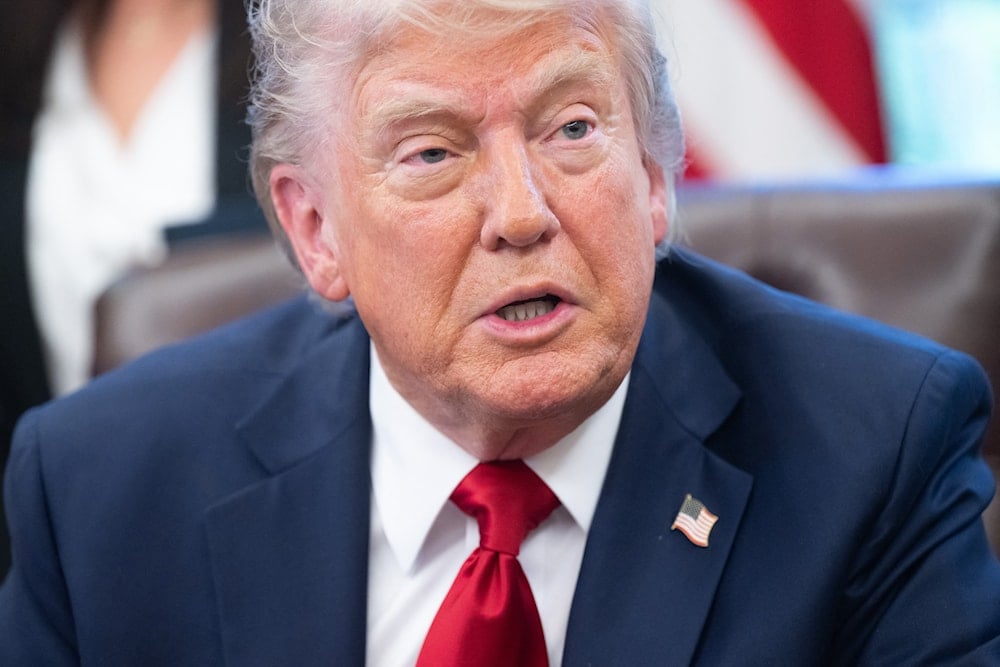12 US states sue Trump administration over tariffs
Twelve US states file a lawsuit against the Trump administration, claiming his tariff policy violates the Constitution and causes economic chaos.
-
 US President Donald Trump signs executive orders relating to higher education institutions in the Oval Office of the White House in Washington, DC, on April 23, 2025. (AFP)
US President Donald Trump signs executive orders relating to higher education institutions in the Oval Office of the White House in Washington, DC, on April 23, 2025. (AFP)
A coalition of 12 US states has filed a lawsuit against the Trump administration in the US Court of International Trade in New York, seeking to halt what they describe as an unlawful tariff policy.
The Trump tariff lawsuit argues that the tariffs, implemented under the guise of national security, have caused significant disruption and economic damage, violating the limits of presidential power.
The plaintiffs, Oregon, Arizona, Colorado, Connecticut, Delaware, Illinois, Maine, Minnesota, Nevada, New Mexico, New York, and Vermont, say that US President Donald Trump’s tariff measures were dictated by his “whims rather than the sound exercise of lawful authority.”
Legal basis: The International Emergency Economic Powers Act
Central to the lawsuit is a challenge to Trump’s interpretation of the International Emergency Economic Powers Act (IEEPA), which the administration used as justification for imposing tariffs.
The states argue that the act only allows the president to act in the face of an "unusual and extraordinary threat" from abroad, a condition they claim is not met.
“By claiming the authority to impose immense and ever-changing tariffs on whatever goods entering the United States he chooses, for whatever reason he finds convenient to declare an emergency, the president has upended the constitutional order and brought chaos to the American economy," the lawsuit states.
The plaintiffs are asking the court to declare the tariffs illegal and to prevent government agencies from enforcing them further, arguing that Congress has the sole authority to impose tariffs.
Arizona Attorney General Kris Mayes called the policy “insane”, labeling it “not only economically reckless – it is illegal.” Connecticut Attorney General William Tong added that the tariffs are “a massive tax on Connecticut families and a disaster for Connecticut businesses and jobs.”
The economic consequences have been far-reaching, with states warning of lost revenues and job losses. The lawsuit underscores fears that arbitrary tariff decisions could undermine state economies.
Previous lawsuits and broader implications
Last week, California Governor Gavin Newsom filed a separate lawsuit in federal court, warning that California, as the largest importing state, could lose billions of dollars due to the tariffs.
A White House spokesperson, Kush Desai, responded to the growing legal challenges by defending the administration’s actions.
Desai said the Trump administration “remains committed to addressing this national emergency that’s decimating America’s industries and leaving our workers behind with every tool at our disposal, from tariffs to negotiations.”
As more states join the legal fight, the US states suing the Trump administration could set a significant precedent regarding the limits of executive power in trade policy and reinforce the constitutional role of Congress in managing tariffs.
Read more: IMF cuts global growth forecast for 2025 amid Trump tariffs

 3 Min Read
3 Min Read








